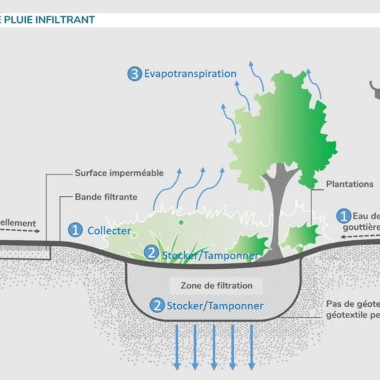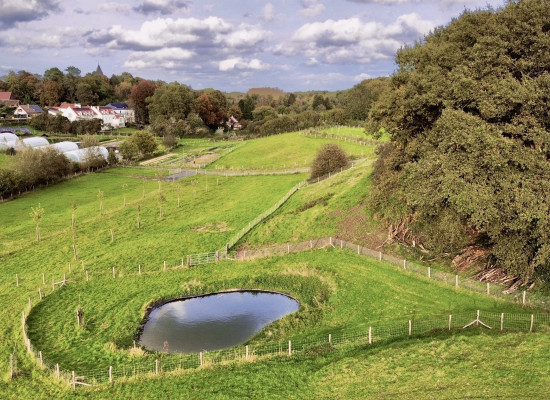Water Smart Cities Project
Article

Article

The floods of July 2021 were a stark reminder of the extent to which our choices in terms of land use, agricultural practices and regional planning influence the behavior of watercourses… and, more broadly, our ability to live with them.
While these issues have long been studied by scientists and land managers, recent events call for a systemic rethink: it's no longer just a question of evacuating excess water, but of restoring natural water cycles to better adapt to hydrological intensification.
Storing, slowing down, infiltrating… but also activating vertical flows via evapotranspiration: agriculture, often perceived as a source of pressure, can become an ally in the hydrological resilience of territories.
Because we can't talk about hydrological resilience without talking about agriculture; because we won't convince the farming community with speeches that focus solely on watercourses; and because it's time to put scientific knowledge and feedback from the field into dialogue, so that together we can identify concrete levers for action.
Aurore Degré, professor at the University of Liège
Specializing in sustainable agricultural practices and water resource management, she will present the role of agricultural practices in regulating rainwater. Using concrete case studies - notably from the Vesdre and Mehaigne watersheds - she will show how certain regenerative practices can reduce runoff and slow down the rate of flow. With figures to back her up, she will outline the impact of climate change on hydrological flows and explore ways in which the agricultural sector can adapt.
Fabian Féraux, Rivière & Féraux
He will illustrate the importance of an integrated approach that links agricultural practices, hydraulic infrastructures and the natural functions of the land. He will show how to slow down, divert or infiltrate water according to slopes, soils and uses, and how to mobilize natural buffer zones intelligently.
At the crossroads of research, agricultural innovation and sustainable development, this webinar aims to stimulate collective reflection on concrete strategies for building more resilient territories in the face of climatic hazards.
Article

Article

Event
